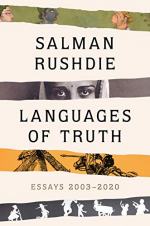|
This section contains 1,436 words (approx. 4 pages at 400 words per page) |

|
Summary
In “Autobiography and the Novel,” Rushdie presents “the title pages of three of the greatest” eighteenth century novels (148). The most striking thing about these pages, Rushdie asserts, is “the absence of the true authors’ names” (149). Such works demonstrate the former distinction between fiction and life. Charles Dickens is perhaps to blame for the later blur between reality and fiction. With time, an increasing number of writers began asserting the overlap between their works and their lives. Rushdie believes that this has led to an “autobiographical obsession” (152). Throughout his own career, he has learned the ways life might inspire one’s work, but is always obscured by the writing process. He wants to emphasize the importance of this process, or what he deems “The joy of cooking” (157). He goes on to further consider the relationship between...
(read more from the Part Two: Autobiography and the Novel - Part Three: Courage Summary)
|
This section contains 1,436 words (approx. 4 pages at 400 words per page) |

|




